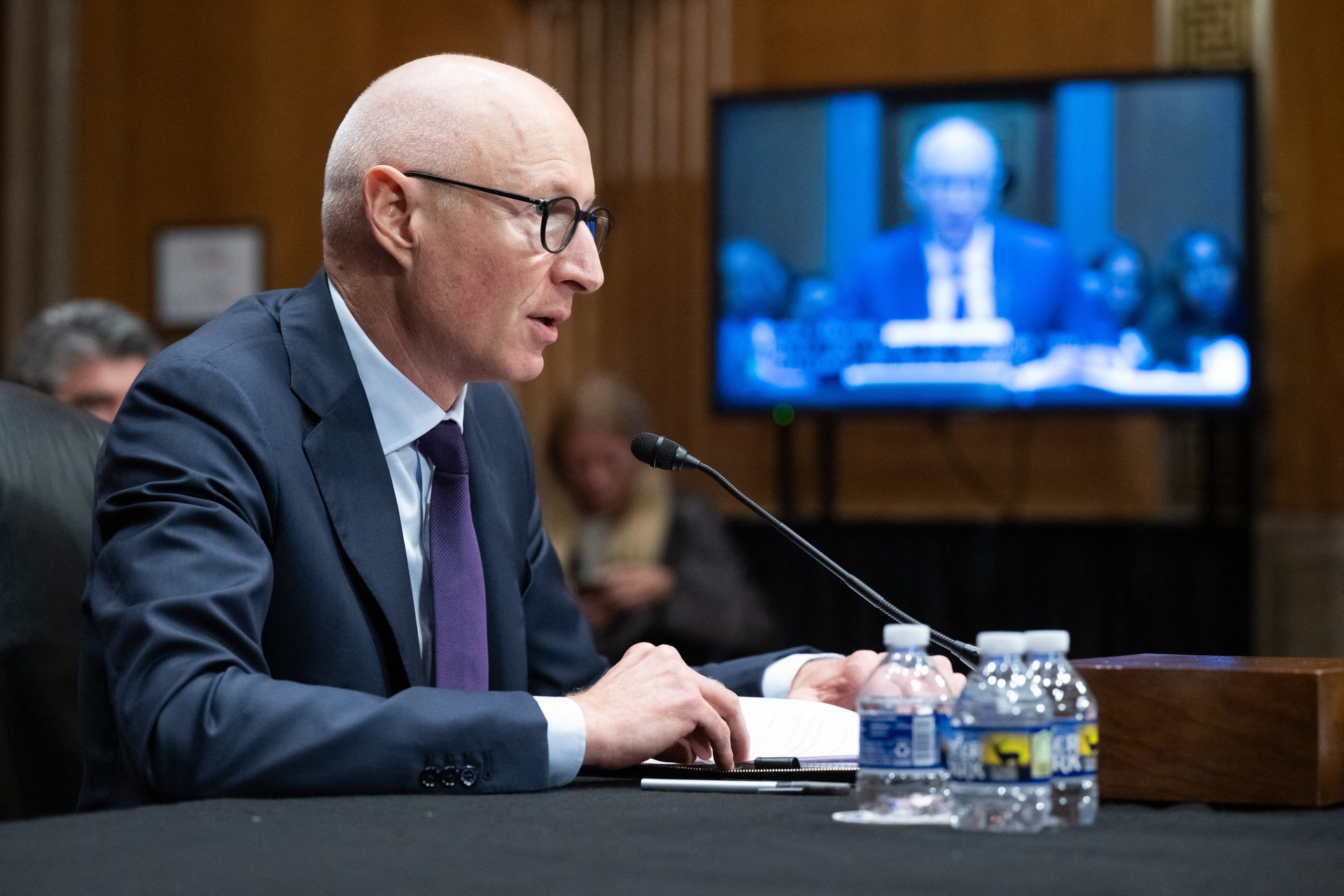Novo Nordisk's CEO took the Washington hot seat over Ozempic prices. 3 takeaways from his testimony
CEO Lars Fruergaard Jørgensen appeared before lawmakers to talk about the company's popular weight loss drugs

Novo Nordisk (NVO) CEO Lars Fruergaard Jørgensen agreed today, during a Senate committee hearing, to sit down with lawmakers and pharmacy benefit managers (PBMs) to look into the possibility of cutting list prices for the company’s popular diabetes and weight-loss drugs.
Suggested Reading
Jørgensen was grilled Tuesday morning by the the Senate Committee on Health, Education, Labor, and Pensions (HELP), chaired by Sen. Bernie Sanders, regarding what the company charges for its blockbuster drugs Ozempic and Wegovy in the U.S. compared with other countries.
Related Content
Ozempic and Wegovy belong to a class of weight-loss and diabetes drugs known as GLP-1 medications. Recent trials have found these drugs have additional health benefits such as cutting heart risks and alleviating symptoms of sleep apnea. Morgan Stanley analysts anticipate the global market for this drug class will reach $105 billion by 2030.
Soaring demand for these treatments have turned Novo Nordisk and its rival Eli Lilly (LLY), the maker of Zepbound, into the most valuable pharma companies in the world. However, due to high prices, insurers have been hesitant to cover these game-changing drugs, limiting patient access.
This year, several politicians, including President Joe Biden, have called on pharma companies to slash the prices of GLP-1 drugs.
In April, the HELP committee launched an investigation into Novo Nordisk’s high prices. Jørgensen agreed in June to testify in front of the committee, after Sen. Sanders called for a vote to subpoena the pharma executive.
Here are the three main takeaways from today’s Senate committee hearing.
Americans pay more for Ozempic and Wegovy than patients in other countries
In the U.S., the list price — a drug’s price without health insurance — for Ozempic is $968.52, while it’s just $59 in Germany. The list price of Wegovy in the U.S. is $1,349.02, despite being only $92 in the U.K.
Novo Nordisk has made $50 billion in sales from Ozempic and Wegovy since 2018 — with 72% of that revenue coming from U.S. sales, Sen. Sanders said at today’s hearing.
“In other words, the United States is Novo Nordisk’s cash cow for Ozempic and Wegovy,” Sen. Sanders said.
Jørgensen pointed out that, at the pharmacy counter, the majority of patients with insurance pay $25 or less a month out-of-pocket for those medications.
“Yes, millions of Americans with decent health insurance pay minimal amounts for their prescription drugs. That’s the good news,” Sen. Sanders responded. “The bad news is that they are paying a fortune in premiums, deductibles, and c0-payments for the insurance that covers those drugs.”
Drug middlemen play a role in keeping prices up
Both sides agreed that PBMs, third-party administrators of prescription drug plans for health insurers, play a major role in keeping drug prices high.
Jørgensen claimed Ozempic’s net price — the amount Novo Nordisk is actually paid by insurance companies after rebates and discounts are applied — has dropped about 40 percent in the U.S. since it launched in 2017. Wegovy, which launched in 2021, has seen its net price fall similarly.
But those declines, which keep the price of these drugs hundreds of dollars more expensive in the U.S. than in other countries, have not been seen by patients.
In the chief executive’s written testimony, Jørgensen claimed that “while PBMs negotiate low net prices for their corporate parents, those insurers design their plans such that nearly half of all patients’ out-of-pocket spending for brand medication is based on the full list price, with the insurer collecting the difference.”
He also warned that lowering the drugs’ list prices could have unintended consequences, such as health insurers dropping them from their formularies.
Major PBMs have agreed not to drop coverage for Ozempic and Wegovy — if their prices are slashed
Sen. Sanders claimed he has received written agreements from major PBMs — including Express Scripts (CI), United Health Group (UNH), and CVS Caremark (CVS) — to not drop coverage of Ozempic and Wegovy if their list prices are drastically cut.
Jørgensen agreed to work with PBMs and the committee to look into the possibility of price cuts, as long as they don’t affect patient access.
“Anything that can help patients get access, I’m supportive of, and that also includes collaborating and negotiating with anyone who can help,” Jørgensen said.
A Novo Nordisk spokesperson added, in a statement emailed to Quartz, “While no single company can fix the American healthcare system alone, we look forward to continuing to work with policymakers and other stakeholders toward meaningful solutions for the people who rely on our medicines.”
